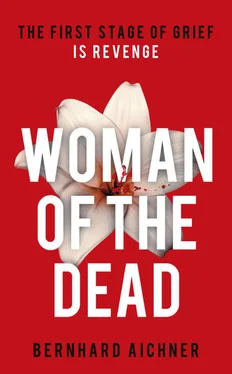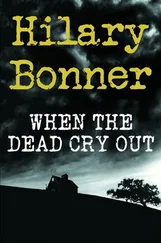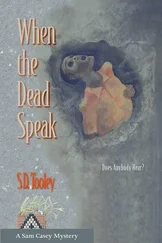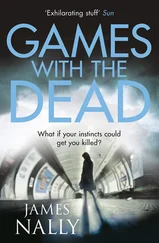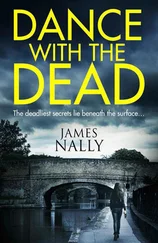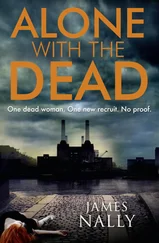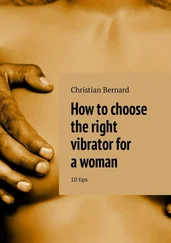Massimo is weeping. His wife stands beside him, and Karl next to them. Blum and the children are standing beside the grave, right at the front, throwing sunflowers into its depths. The yellow petals lie on the coffin, a comforting image but just for a moment. Flowers for Papa. The sight of the flowers hurts; the hurt is even greater than it was at first, now, after three days without him. Three days in which they have been searching desperately for their ordinary lives. Reza was at the helm, organising everything. He was there for Blum, for the children, for Karl. But for him the boat would have capsized. He is strong, he doesn’t shed tears, but his smile has disappeared, the smile that had come to his face years ago when his life at the villa began.
Reza helped to carry the coffin; he coordinated everything, drew up the death announcement, organised the funeral. Blum didn’t have to worry about anything because Reza was in charge; she could devote herself to the children, to taking their minds off sad subjects, preparing them, explaining step by step what would happen. Trying to tell them that the coffin will simply disappear into the ground. That death is a part of life and takes what it wants, like a wild beast tearing apart a sheep. A car coming out of nowhere. Sunflowers falling. She put it in prettier, less truthful terms, not wanting to frighten the children, wishing to spare them.
The sun is shining in the cemetery. Reza looks after Karl, supporting the old man. Karl can hardly stand, his legs won’t carry him, he hasn’t been able to eat or sleep. He has aged several years in these three days. Many of the mourners are weeping, the police band plays a funeral march, countless colleagues of Mark’s are present, and Massimo, Mark’s best friend, delivers an address. He remembers the good times, the operations they undertook together. Mark was one of the good cops, says Massimo, a man with a heart, unforgettable, a loss to all who knew him. Massimo sheds more tears.
One by one they throw earth down into the grave. Then the mourners leave him alone. Mark is deep down in the ground, in his coffin. He is on his own, while they all go to the restaurant and drink to him. They offer Blum help and condolences, they assure her that things will get better. She can hardly look them in the eye; they are as powerless as she is. Helplessly, she sits with a plate of chicken soup; helplessly, she tries to persuade the children to eat. There’s no more that she can do. She can only be there for them, love them, give them all she has. She mustn’t leave them alone with their pain and their fear; the children are all she has left of him. How sad they are, and how strong. They endure what has happened, are adjusting to it. They sit still and wait for the storm to pass. Blum strokes their hair, Uma’s hair, Nela’s hair. And Massimo takes Blum aside, puts his arm round her affectionately.
‘Drink this.’
‘No.’
‘Go on, have a drink.’
‘If you insist.’
‘I’m so sorry, Blum.’
‘I know.’
‘And you know that I’ll always be there for you.’
‘But even you can’t bring him back, can you?’
‘No, I can’t do that. Mark was one of the most important people in my life too; I owe him this.’
‘You owe him what?’
‘Taking care of you for him.’
‘No one has to take care of me.’
‘Yes, they do, Blum. Ute and I can help you with the children.’
‘That won’t be necessary.’
‘You’ll need all the help you can get, Blum. Don’t be so stubborn, I mean you well. You know how much I care about you and the children.’
‘You have enough problems of your own.’
‘They’re not important now.’
‘Mark said you’re getting a divorce.’
‘Let’s not discuss that here, please, Blum.’
‘Why not? Let’s talk about your failed marriage; let’s talk about your wife and her little problem.’
‘Why are you doing this, Blum?’
‘What am I doing? Look at her, she’s babbling, she can hardly stand up straight. And it’s only midday. Maybe you’d do better to take care of Ute, not me.’
‘Maybe I should leave you alone.’
‘Maybe you should.’
‘Anything you say. I’ll be off.’
‘Oh no.’
‘What do you mean, no?’
‘Please stay. I’m sorry I spoke like that, Massimo. I didn’t mean it.’
‘That’s all right.’
‘I don’t know if I can manage without him. With the children, with everything. I just don’t know.’
‘You have Reza and Karl. You have me.’
‘I wish I could die. Don’t you understand that? I wish I could die.’
‘You don’t, Blum. You’re strong, you’ll cope even without him.’
Massimo passes his right hand over her back, up and down. It’s the only thing he can do, the only thing that helps. Words are no use; Blum doesn’t want to hear them. She doesn’t want to think, to envisage the future. She just wants it to be night, for the lights to go out so sleep can come. She doesn’t want to think, or feel anything but Massimo’s hand going up and down her back.
Two weeks have passed, two weeks without him. It is still summer, the children run round the garden in short dresses. Karl is sitting in his armchair while Blum hangs out washing. It is almost as if everything were all right again; from the outside looking in, life is the same. The garden, the old apple trees, the swing going back and forth, Uma flooding the flower bed in the garden, Nela rubbing earth into a doll’s hair. The sky stands still, not a cloud in sight. It still hurts. When she wakes up, when she goes to sleep, when the children talk about him. Blum knows it won’t get any better, it won’t stop eating away at her, but she has decided not to die, not to drop by the wayside. Instead, she will get up every morning and go on living for the children. Never mind how difficult it is, she must stay here, go on, put one foot in front of the other however heavy her legs feel. And never mind how much she longs to deaden her memories with pills and alcohol. She has to decide against Valium and vodka every evening once the children are in bed. She must be in working order, although she wants only to forget. Every morning she tries yet again to be cold and invulnerable. And every morning she fails.
There’s still no sign of the hit-and-run car. The driver can’t be traced, and seems to have disappeared from the face of the earth. He was probably drunk, driving too fast, but he must have seen Mark. The police have no clues, there’s no black Rover in the local garages, they’ve followed up all leads. Hit-and-run, outcome fatal, say the files, driver unknown. A driver who got away with his life and his liberty, snuffing out Mark’s just like that. He could have been on his phone, typing an email, sending a text, maybe he just nodded off. Blum will never know. They’ll never find him, although Massimo is doing his best.
He’s as good as his word and has been there for her ever since the funeral, helping her to wind up Mark’s official life, visiting offices, insurance firms, lawyers, notaries. Massimo shields her from everyday life, and Reza does too. So that she can look after the children, so that she can survive, so that the tears don’t drown her. The business is running as usual because people don’t stop dying. Reza collects the dead from care homes, from the forest, from their offices, their beds, the street; he does his job the way Blum taught him. He works the whole time, he says little, his feelings are hidden somewhere obscure. He has fewer words than Massimo, in fact none at all. So he is glad that Massimo is looking after Blum, acting as a buffer for her, listening to her pain.
Massimo is a friend of many years’ standing, Mark’s colleague and indeed his superior officer. He is only three years older than Mark, but rose quickly in the ranks. Massimo spends more time at the police station than at home. Because he loves his job, he says. Because he doesn’t want to be at home, Mark used to say. His marriage is over; Ute has taken to the bottle. The children they’d wanted never came along. They tried for years. He and Ute saw Blum having babies without any difficulty. Their friends’ happiness showed up their own failure. Much as she wanted to, Ute never got pregnant and even IVF didn’t work. Their unhappiness grew worse, their desperate longing was a heavy burden on their marriage. So heavy indeed that Ute began drinking. Massimo suffers from it more every month; his friends see the unhappiness to which he wakes every morning written on his face. None of his attempts to help Ute have come to anything. He tried persuading her to go to therapy, said he would go to marriage counselling with her. Nothing worked; she wouldn’t let anyone or anything come near her. Blum realises that he is suffering more than he admits. She can see that he has already given Ute up as a hopeless case, and no longer wanted to intervene when she climbed up on the table at the funeral, blind drunk. That was two weeks ago, and he was slow to go to her aid. Trying to restrain Ute was nothing but his duty, and all that he could manage was damage limitation. Shaking his head, embarrassed to know that everyone in the room was staring and pitying him, because Ute had lost control, was screaming and shouting. Isn’t there some bastard around here can give me a fucking child? Come along, get your bloody prick out and fuck me, why don’t you? Ute was scrambling over the tables, screaming. Massimo eventually followed, seized her and dragged her outside.
Читать дальше
